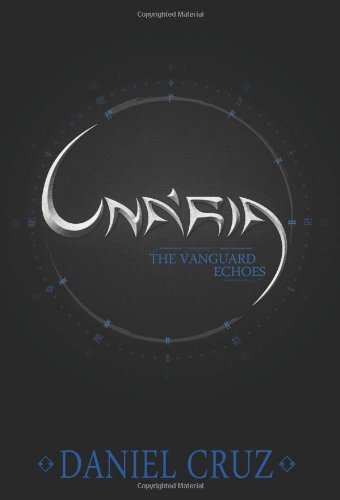
The protagonist, Laniard Lonzol, is a practitioner of marital arts. (His Famixa is called Ekans, and the pair is often referred to by their combined name: Lan’ek). Despite his abilities and training, Laniard is not looking for a fight when he encounters a mysterious villain whom he ends up pursuing for the rest of the novel.
The world building in this book is incredibly detailed, which can be a bit of a strain at first. Cruz thoughtfully embeds the description of new and unusual technology, biology, and sociology within the narrative, giving the reader an entertaining context for the detail and a much-needed breather from the action. The action scenes in this book are so vivid — the word ‘choreographed’ comes to mind — that when reading them, you often find yourself as breathless as the characters. However, the world here is comfortingly familiar as well. This combination of the exotic and the mundane makes it easier to enjoy the sci-fi while still relating to the characters and their situations.
It took me a while to get my bearings in this new world, and I often found myself getting lost and having to look back to verify some fact or the identity of a character. There are many, many characters, and they are sometimes referred to by their given names, sometimes by their pair-bonded names, or occasionally by their species (“The Rytelois said ….”). In that way it is like reading a nineteenth century Russian novel. But also like a nineteenth century Russian novel, the characters are so well-developed that eventually I got it down, more or less. Well, at least I got the major characters down.
Una’ria is filled with battle scenes, plot twists, and surprises. It is also laced with wit and humor. Cruz has a knack for dialog and for developing the relationships between characters, and he is able to show kindness and love and connection as well as wickedness and treachery. He does a lovely job with a tender scene between a brother and his mentally ill sister. Often language gets the better of him, though, as he reaches for more word than he needs, and all too often comes up with an inapt phrase or strange image. For example, in one place, we encounter this:
“It can’t be,” Laniard whispered, sundering the denial of his heart’s fragility.
Yet occasionally he really nails it:
Laniard’s lack of nourishment fed his grumpiness.
Or when he describes drawbridges as:
rising to salute the coming vessels.
Una’ria also has some interesting subtexts about multiculturalism and power relations. But frankly, I was so busy trying to follow the action and keep up with the basics of the plot that I couldn’t dig too deeply into these. This may be a book for multiple reads, for those who have the energy.
Readers who love to dive into dense, action-packed, yet emotionally rich science fiction and are willing to make the effort to wade through florid prose and extremely long and detailed action scenes will likely enjoy this book and be eager for more from this author.
Links
Get an Editorial Review | Get Amazon Sales & Reviews | Get Edited | Get Beta Readers | Enter the SPR Book Awards | Other Marketing Services






















Leave A Comment